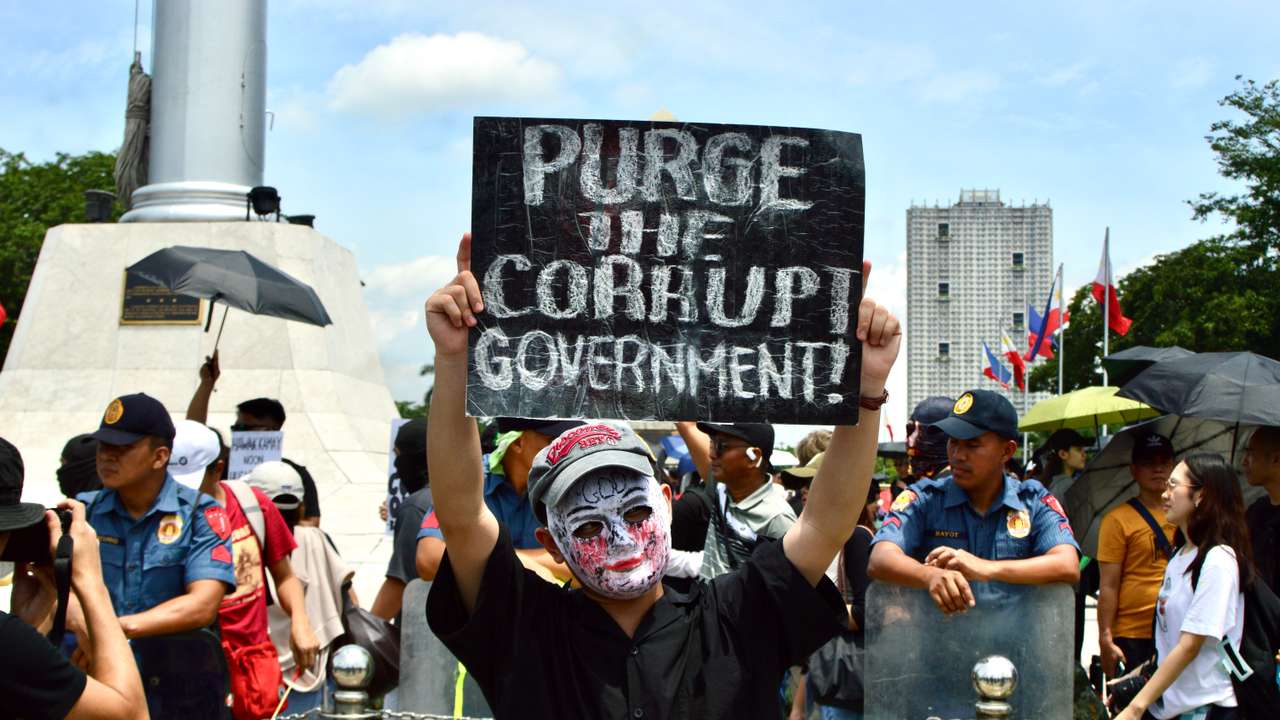Corruption tests the Philippines’ position as Southeast Asia’s fastest-growing economy

Among its Southeast Asian peers, the Philippines remains the region’s fastest-growing economy. But this standing has been overshadowed by a series of corruption scandals that revealed billions of dollars lost to fraud in government projects.
Confidence in the Philippine market has faltered following revelations of corruption in flood-control programs. The Department of Finance estimated that about P119 billion ($2 billion) was siphoned from these projects in just three years.
While investigations are still underway — with no prosecutions yet involving either private contractors or lawmakers — the fallout has already rippled across the economy. The Securities and Exchange Commission (SEC) reported that stock market investors lost P1.7 trillion ($29 billion) in just three weeks amid a “crisis of confidence.”
According to the Philippine Securities and Exchange Commission, stock market investors lost P1.7 trillion ($29 billion) in just three weeks due to the “crisis of confidence” spurred by the flood-control mess.
“It’s a stark reminder that corruption is a weapon of mass wealth destruction,” SEC Chair Francis Lim said. “When trust breaks down, capital dries up, and everyone — government, business and the public — pays the price.”
Despite the turbulence, most Philippine banks have kept their GDP growth forecasts steady, ranging between 5.3% and 5.7% for the year — still above Vietnam’s projected 5.25%.
Outside the country, however, international peers are starting to take notice, and caution.
A recent U.S. Department of State report described corruption as “a pervasive and long-standing problem in both the public and private sector,” citing the World Economic Forum’s finding that it remains one of the top obstacles to doing business in the country.
The report also noted that a “complex, slow, redundant, and sometimes corrupt judicial system inhibits the timely and fair resolution of commercial disputes.”
In September, South Korea cancelled for the second time a $510 million loan to the Philippines for agricultural infrastructure, with President Lee Jae-Myung citing “risks that could lead to poor management and corruption.”
There was even a reported incident that a Filipino travelling to Norway was blocked from exchanging currency at an airport “because of the corruption and money laundering in the Philippines.”
Though the massive fraud in flood-control projects was exposed only recently, corruption is hardly new to the Philippines. The country has consistently ranked low in Transparency International’s Corruption Perceptions Index — 114th out of 180 countries since 2019 — a reflection of how deeply entrenched the problem remains.
This story is written and edited by the Global South World team, you can contact us here.